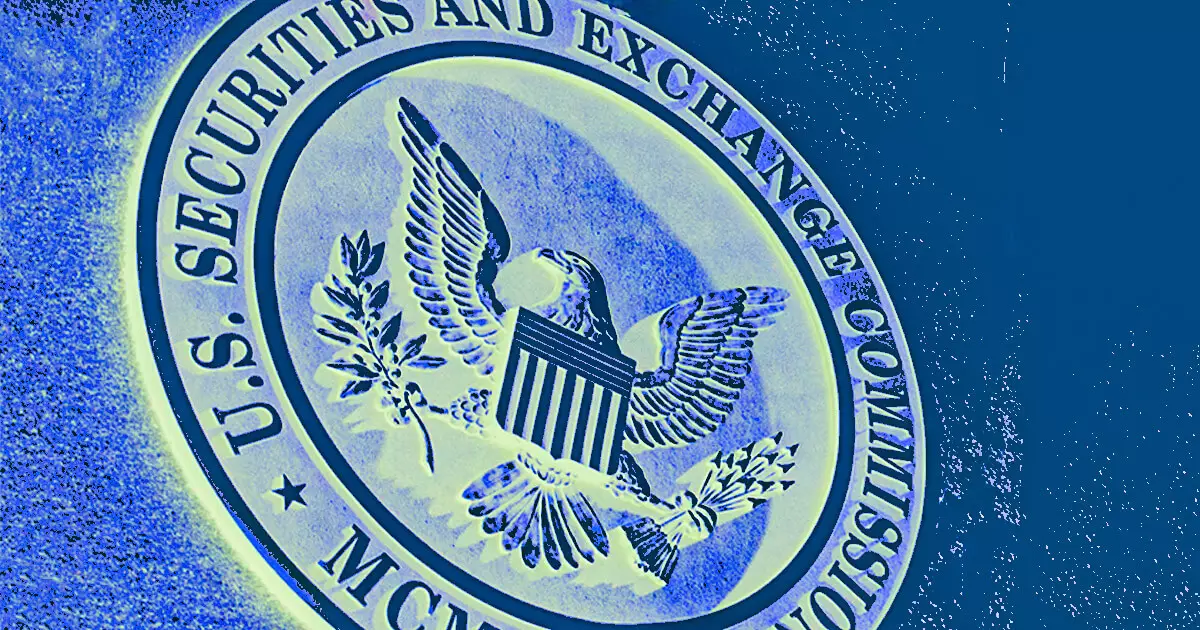The cryptocurrency sector, once envisioned as a realm of innovation and autonomy, now finds itself ensnared in a web of regulatory ambiguity and enforcement actions. The remarks made by SEC Commissioner Mark Uyeda highlight the ongoing struggles within the Commission concerning how to govern this rapidly evolving industry. His assessment reveals a critical viewpoint on the agency’s current operational strategy, indicating that the SEC’s heavy-handed enforcement tactics have contributed to a disastrous environment for crypto companies.
During his recent Fox Business appearance, Uyeda expressed concern over the SEC’s methodology of developing policies through enforcement rather than through clearly defined regulations. This approach has unfortunately bred confusion, leaving many companies in the cryptocurrency space unsure about their legal standing. With courts stepping in to resolve disputes, the resultant inconsistency in rulings adds another layer of complication. As Uyeda aptly noted, this policy direction misses the mark—without clear guidance, companies flounder, and the industry suffers.
This mechanistic approach raises questions about the effectiveness of the SEC in adapting to the digital asset landscape. The ongoing tensions between regulatory bodies and various crypto firms only amplify these concerns, as demonstrated in cases like the recent lawsuit filed by Crypto.com. The crux of their legal argument centers on the claim that the SEC overstepped its boundaries in categorizing numerous tokens as securities, a classification that did not account for the unique features of these assets.
A Call for Clearer Regulations
Uyeda’s comments on the need for explicit definitions within securities laws resonate strongly with many in the industry who have expressed frustrations over the regulatory haze. His observation on the absence of interpretive guidance identifies a crucial flaw in the SEC’s current approach. Stakeholders in the cryptocurrency field are left grappling with questions about what constitutes compliance under existing laws, further exacerbated by the SEC’s tendency to respond to infractions with punitive measures rather than supportive guidance.
One must consider the implications of Uyeda’s call for clearer regulatory frameworks. As cryptocurrencies grow in popularity and the market matures, a failure to delineate the boundaries of acceptable practices could hinder innovation. Without a solid legal foundation, companies may either divert resources to address regulatory fears or, worse, choose to operate in jurisdictions with more favorable regulatory environments.
In his address, Uyeda underscored the importance of fostering a collaborative relationship between regulatory bodies and the crypto industry. Prominent cases, such as those involving Ripple Labs and Coinbase, demonstrate the growing rift and mistrust between regulators and innovators. As these legal battles unfold, they not only impact the entities involved but also cast a long shadow on prospective participants in the crypto space.
Going forward, proactive engagement is essential for establishing a regulatory framework that balances the need for oversight with the encouragement of innovation. If regulators work closely with industry representatives, it may be possible to create an environment that is conducive to growth whilst ensuring adequate investor protection.
The SEC’s current regulatory approach has sparked considerable debate, with calls for clearer guidelines becoming increasingly critical. As the digital asset landscape continues to shift, the importance of defining the parameters of regulation cannot be overstated; doing so may be key to unlocking the true potential of the cryptocurrency ecosystem while maintaining the necessary safeguards for market integrity.

